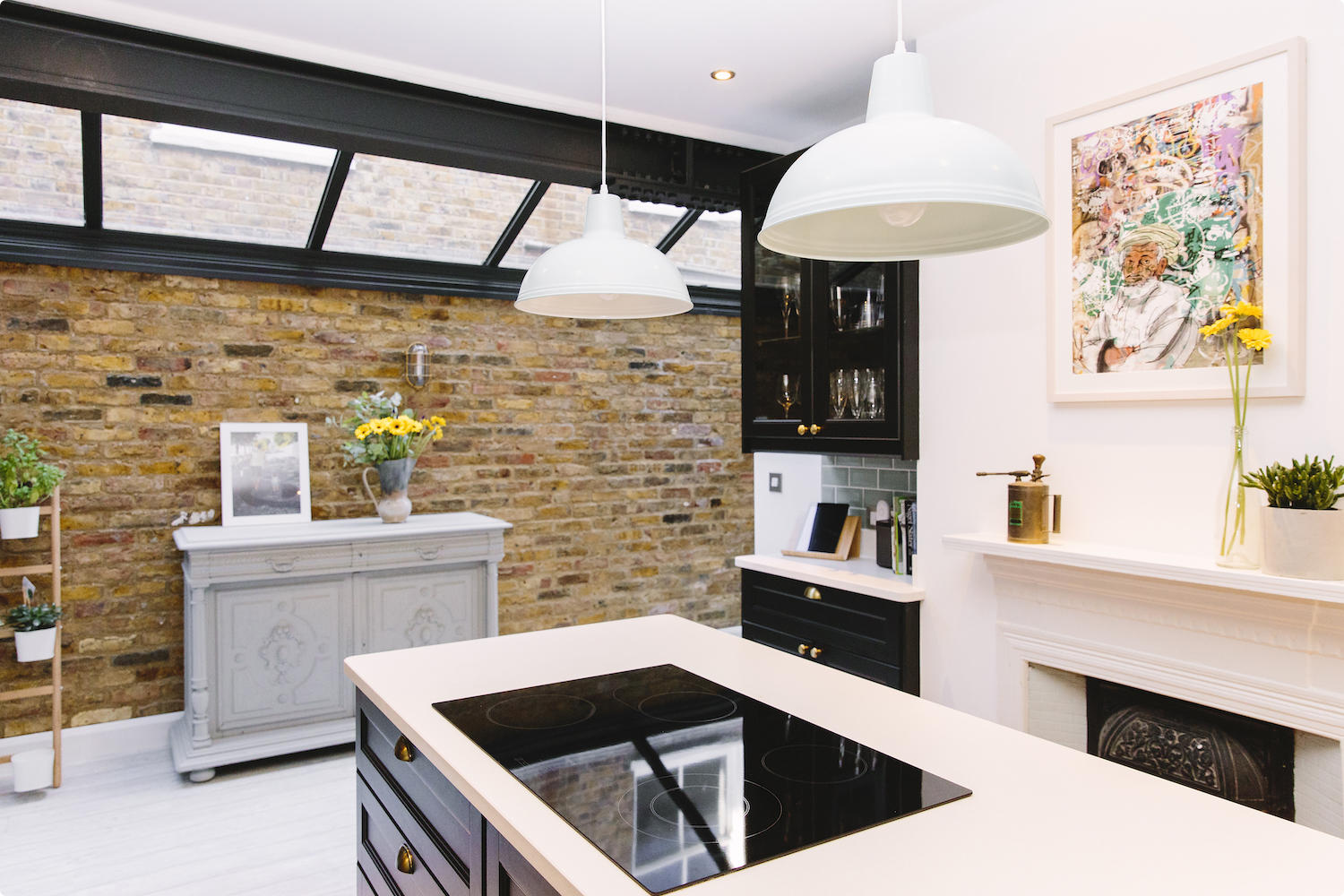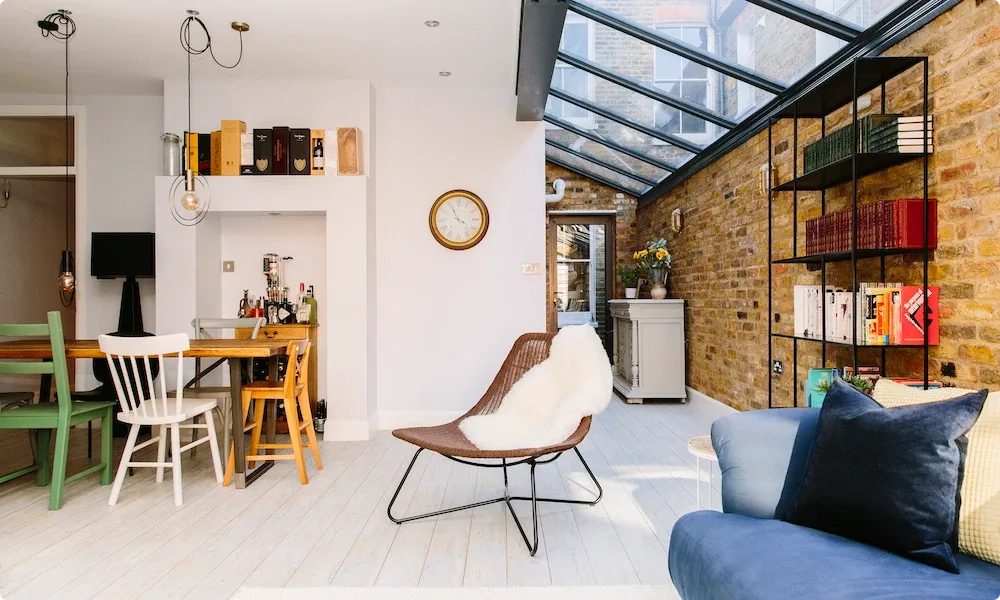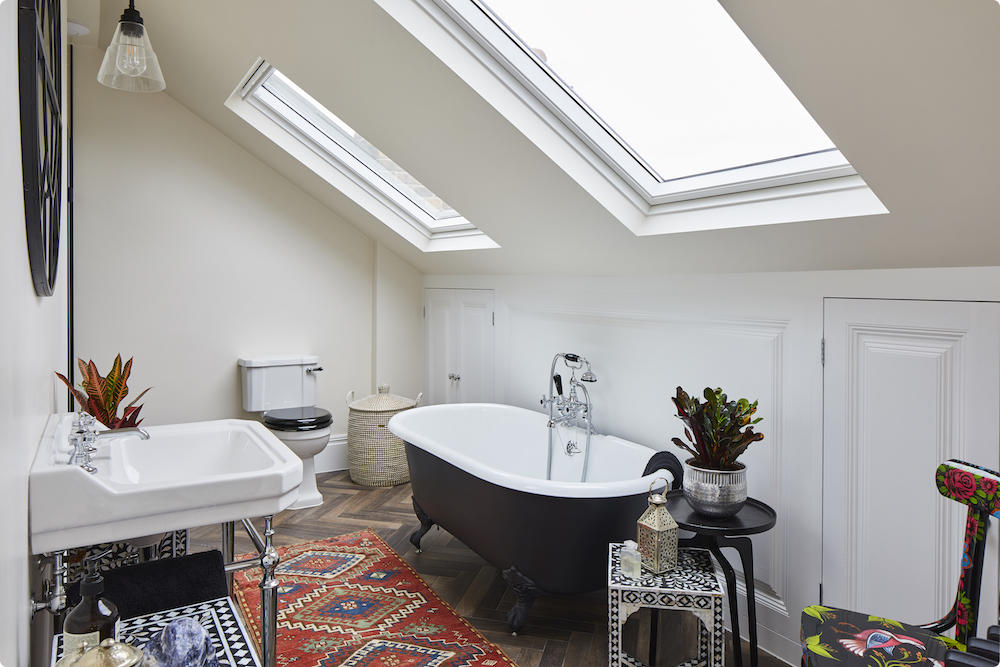Lack of research on the local area
When looking for a house to buy, you should be considering the local area just as much as the house itself. This is because location affects the price of a house and can sometimes even limit it. If you’re renovating with a view to make a profit on this investment in the future, you need to assess properties like yours nearby and find out if there’s a ceiling price at work.
A ceiling price is essentially the maximum amount your property can be worth, regardless of how much renovation work you undertake. If you’re not sure if this will affect you, talk to an architect or a (trustworthy) estate agent.
Not budgeting enough for the full renovation
Money - it’s a big one.
One of the biggest mistakes first-time renovators make is not having enough budget to cover their whole project. In the best-case scenario, this error delays your project, but in the worst case, it can push you towards incurring debt.
To avoid this, we recommend talking to an architect to help you understand the full cost of your renovation.
Learn more: A guide to working out the total cost of your project
Choosing a bad finance route
There’s more than one way to finance your renovation, and some routes are better than others, depending on the type of work you plan on undertaking.
Options include…
- Savings
- An unsecured personal loan
- Mortgages
- Remortgaging or using a further advance
- Credit cards
To understand what the details of these options are and which is best for your purchase, you should talk to a specialist broker. This will not only ensure you avoid a bad payment plan, it’ll also help map out your potential budget.
At Resi, our finance experts work alongside our designers, meaning we can look at any potential properties and advice not only on loans and rates but renovation options too.
Learn more about Resi Finance here.

No contingency plans
No matter how much you prepare, things can go wrong. This is why it’s important to always have a contingency fund in place. At Resi, we recommend you set aside 10% of the total construction costs to help cushion the blow should your project face some bad luck.
Perhaps bad weather causes delays, your materials get stuck in customs, or maybe you get caught in a global pandemic and new safety measures have to be put in place. Whatever the reason, you should always budget with the worst-case scenario in mind.
Avoiding architects
Many view architects as one expense too many, but if you’re a first-timer, having one on your side can be priceless. An experienced architect will have a good understanding of all the stages a renovation project needs to go through, making them an ideal guide for the journey. They’ll be able to advise on…
- Planning options
- Design ideas
- Budget requirements
- Building regulations
- Putting your project out to tender
Plus much more.
What’s more, for bigger renovation projects, they’ll be able to demonstrate the best ways to unlock the potential in your property, ensuring you get the most value out of your investment.
See an architect at work by visiting our portfolio.
Not exploring your planning options
Speaking of property potential, one of the best ways to explore what’s possible for your home is getting to grips with local planning policy. For a lot of homes, you’ll be able to use something known as permitted development rights to bypass subjective full planning applications to make extensions.
Permitted development rights can be used to create…
- Rear extensions
- Side extensions
- Two-storey extensions
- Loft conversions
- Annexes
- Additional storeys to the top of the property
The rules behind permitted development are complex, so we always recommend working with an architect to make sure your project qualifies.
Learn more about permitted development rights.

Overlooking key tradespeople
They say it takes a village to raise a child and renovating a home is no different. You’ll need to employ a number of specialists, not only to ensure good quality but also to meet a number of legal requirements.
Potential specialists, you may require include…
- Architects
- Structural engineers
- Surveyors
- Party wall surveyors
- Planning agent
- CCTV surveyors
- General contractor
- Electrician
- Roofing contractor
- Landscape gardener
To name just a few.
Visit this guide to get a full breakdown of what tradespeople you might encounter in your renovation.
Overestimating your DIY skills
While DIY is a cost-effective way to renovate your home, it should only be undertaken by those who have the skills to produce quality results. Should you bite off more than you can chew, you could potentially spend thousands trying to rectify your mistakes and you can even devalue your home.
On the whole, DIY is best suited to those final touches, such as decorating and landscaping your garden. If you do feel like you’re quite handy with a power tool, make sure you think long and hard about which parts of your project you take on.
Not consulting your neighbours
If your home shares a wall or boundary with a neighbour, you’ll need next door’s consent for any renovation work that may affect it. In most cases, this can be a painless process. With a party wall surveyor (or by yourself) you’ll service notice about your work and if you get written consent in 14 days, you’re good to go. However, if consent is withheld, then you’ll need to arrange a party wall agreement. This can often be a costly legal dispute, taking around 3 months to secure.
Learn more about party wall matters.
Putting style of substance
A common mistake we see homeowners make is that they prioritise fittings over build. While everyone wants a nice kitchen and bathroom, we would advise against cutting corners during construction in order to afford luxury decoration. Remember, there’s no rush to get all your interior designer items, and fittings always depreciate in value over time. A quality build, however, is an investment you can count on. What’s more, cutting corners during the build can often result in costly repair work being required in the future.

Ignoring your wellbeing
We all want to live in a happy home. However, when it comes to designing our homes and using them day to day, happiness isn’t always at the forefront. We think it should be.
In 2020, we created the Happy Homes report. A research project which surveyed over 4000 UK residents to find out which aspects of a home affect our wellbeing. Through this study, we identified six key qualities which shape day to day happiness.
Take our Happy Homes test and discover which qualities your renovation should focus on.
Leaving building regulations to chance
Building regulations set out all the safety standards your property must comply with, so they’re a pretty big deal. To make sure your renovation complies with all the various parts, we recommend you put together a building regulations package with either your architect or a structural engineer. This will give highly detailed information for your contractor to follow during the build, ensuring nothing is left to chance.
Building regulations are extensive and cover…
- Structure
- Fire Safety
- Site preparation and resistance to contaminants and moisture
- Toxic substances
- Sound
- Ventilation
- Hygiene
- Drainage and waste disposal
- Combustion appliances and fuel storage systems
- Protection from falling, collision and impact
- Conservation of power and fuel
- Access to and use of buildings
- Electrical safety in dwellings
Choosing the cheapest contractor
If you find a contractor who’s offering a ‘too good to be true’ price, chances are it probably is too good to be true. When presented with suspiciously low prices, ask yourself:
- Has every element of the build been included in the quote?
- How long will the project take?
- Are there any red flags in the company’s history?
- Are they asking for a large cash advance?
If you want to be sure your contractor is the real deal, ask your architect to review the quote they’re provided. Another experienced professional should be able to spot red flags on your behalf.
References, references, references
At Resi, we recommend using the rule of three. Meaning, you want to be scoping out at least three contractors, and you want to be visiting three references before committing.
When it comes to checking references, ideally you’ll want to talk to previous clients away from your considered professional. This can either be done over the phone, or ideally done by visiting the case study’s site to see the work for yourself.
Make sure you see both something recent, and a project that was completed at least a year ago. This will give you the best idea of their current skill level, and show how their work stands the test of time.

Getting a bad construction contract
When it comes to hiring a contractor, you want to make sure you’re going through their proposed contract with a fine-toothed comb. That’s because it can be incredibly difficult to get out of this contract, should things turn sour onsite. Most builders will be reluctant to finish another’s work, as it’ll put them at risk, should defects appear in the future. For this reason, make sure you have an experienced professional there to advise you during the tendering stage.
Learn more: 5 common construction contract mistakes
Neglecting to get the right insurance in place
Getting the right insurance in place is the best thing you can do for your home. To make sure you’re protected, at a minimum, you should have…
Home insurance: Did you know, during construction, you won’t be adequately covered by your regular home insurance, especially if you are not going to be in the property during the build? There are some great policies out there and most standard home insurers will sometimes look to cover small amounts of work, but will normally limit cover to “FLEE” only (Fire, Lightning, Explosion and Earthquake). This leaves a rather large gaps in your protection.
Structural warranty: Very few homeowners know about this warranty and fewer still take it out, but it’s a great way to protect your investment! This warranty will protect your project for 10 years from ‘latent defects’ to the structure of the building. This means, should something have gone wrong during construction which isn’t spotted right away, your investment is safe from costly repairs.
Some contractors will give you a “one year warranty” on the works but don’t leave anything to chance - take it out yourself.
Life insurance: if you’re taking out finance on your project, you’ll also want to either update your life insurance plan or take one out. Paying off home improvement loans can take years and you don’t want your surviving family facing the debt alone, should the worst happen.
No project management
A project manager can be a huge help for a first time resonator, especially if you’re tackling a large-scale project. However, they don’t come cheap. For this reason, a lot of homeowners choose to project manage the build themselves.
Project managing your own project can have big benefits. Not only will you save money, you’ll also be able to oversee each stage of construction and ensure every part is up to a high standard. Before you don a hardhat, however, ask yourself the following questions…
- Do I have the time to visit a construction site everyday?
- Would you feel comfortable firing someone?
- Do you have the expertise to spot dodgy craftsmanship?
- Are you a highly organised person?
If you answered ‘no’ to most of the questions, then perhaps hiring a professional is the right route for you.

Pay attention to the details
It’s all too easy to focus just on the big picture, but what about those little details?
- Where and how many plugs do your rooms need?
- Are key work stations getting enough space?
- Can the existing boiler handle heating a larger home?
- How will you clean large glazing features, such as skylights?
When renovating your home, make sure you keep a checklist of all the small things that make a house functional. If you’re not sure if you’ve missed something, discuss these issues with an architect.
Take your time furnishing
When it comes to decorating your home, remember it’s okay to take your time. While we might need to rush out to purchase the essentials, such as a bed, sofa, somewhere to store our clothes, the rest of our possessions should be allowed time to accumulate. Pick items personal to you, mementos of good times, or just simply things you truly love. Going slower will also mean you can save up for bigger, longer-lasting items.










